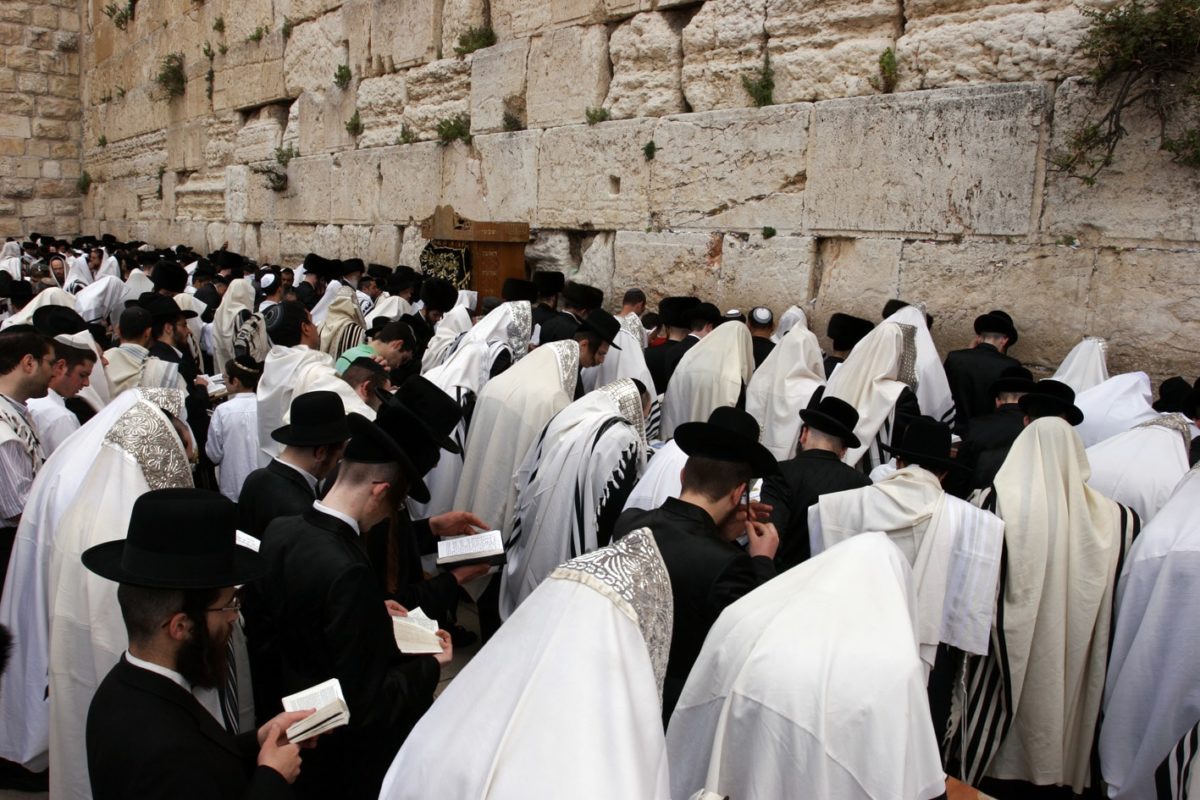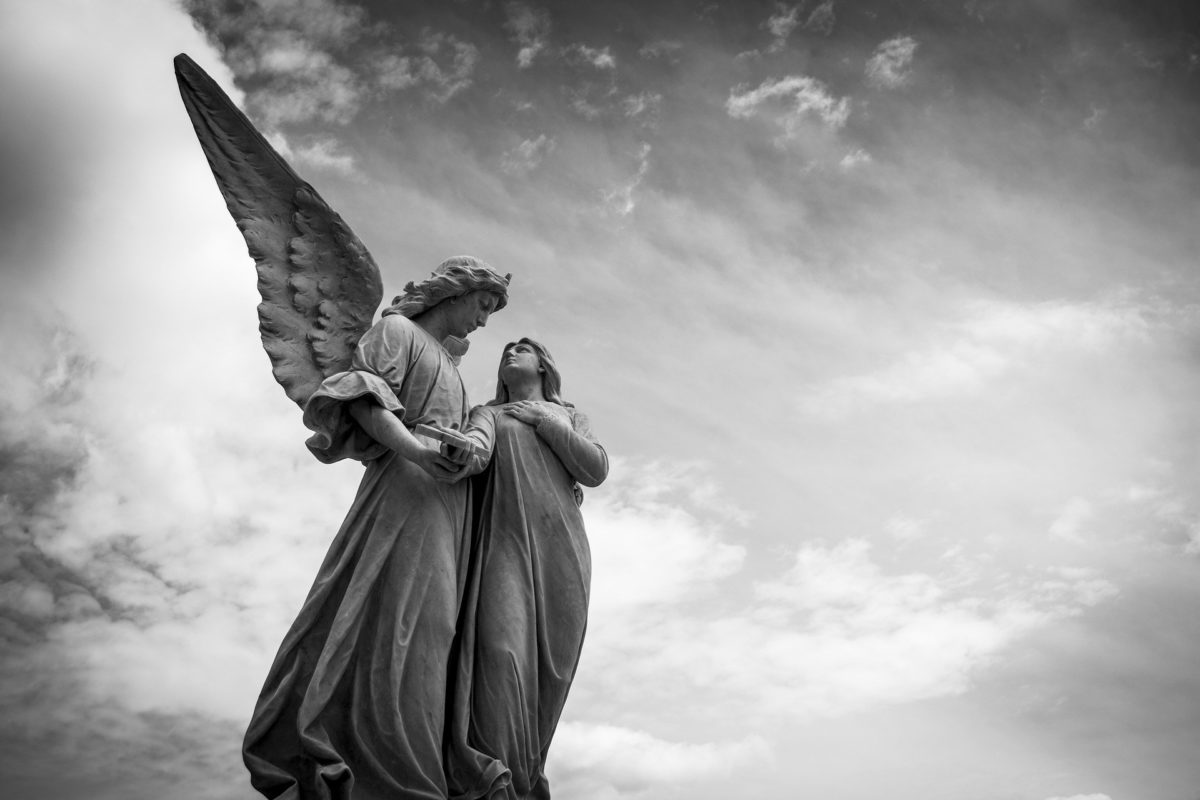The curiosities of Judaism, from its traditions in terms of food, clothing, beliefs to the existence of heaven and hell, it is interesting to know the peculiarities of this religion in order to analyse how it differs from the others that exist in the world.

Jewish trivia
In Jewish tradition, there are clear rules that this religion must follow in terms of what to eat, how believers should wash or dress, and even how they should mourn their dead. Since ancient times, these rules have been established for two basic purposes: to strive for purity or holiness, and to regulate the society of the time, and have been the subject of much analysis by scholars of Jewish and Muslim traditions and rituals.
Jewish culture and tradition is unique, and although many of the norms have fallen into disuse, they provide a clearer picture of the religion itself. Normative Judaism is Orthodox, so it tends to be strict in its application of these rules, although on Jewish holidays the rites are more generalised: Meat is death, milk is life.
There are 613 Jewish commandments, 29 of which are dietary. Just as other religions say that God alone has the right to give and take life, Judaism has its own rules about the process that must be followed to slaughter animals, called “sanctification”. It is called Shechita.

To begin with, one of the curiosities of Judaism is of paramount importance; for them it is necessary to extract all the blood from the animal, as they believe that blood is life and where the spirit is, according to Leviticus (Old Testament). For this reason, in theory, the faithful should not eat blood sausage. Other forbidden foods include crustaceans and shellfish, according to the Torah, another of Judaism’s holy books. However, these “Reform Jews” eat everything. (See article: Chakras and diseases)
Food is of the utmost importance to Judaism because it is loaded with symbolism that understands meat as death and milk as life. Therefore, they cannot be eaten together and a minimum of three hours must elapse before the other food is consumed, depending on the Jewish community. If the food to be eaten is a dairy product, the waiting period can be shorter, as it is easier to digest. Today, there are Jews who have a set of dishes for the exclusive use of dairy products and others for meat products.
These dietary requirements are strictly enforced and adhered to, but are often emphasised during Passover or Pesach. The equivalent of kosher (fit or pure) meat exists in Islam, with its own rules, and is halal meat.
Another food that cannot be eaten in any form is bread. To eat it, believers must remove a small amount of dough from the bread and burn it in honour of the sacrifices made in Jerusalem. This is called challah. In some religions, bread and wine have a special status and value because of their role in the Jewish liturgy and are therefore consecrated on Shabbat (the Jewish Sabbath and holy day). In the past, only wine produced by Jews was consumed. On the other hand, clothing is another requirement for which Zara had to withdraw clothes from the Israeli market for forgetting a Jewish rule.

Another principle that governs the rules of Jewish rites is modesty. This is a rule explained by several professors at the conferences held at the Centro Sefarad Israel and Casa Árabe in Madrid. For this reason, men tend to dress more traditionally, usually wearing black trousers and a white shirt. In the case of women, they avoid bright colours and replace them with neutrals. They do not wear any kind of cleavage, but rather very long skirts to prevent any part of their bodies from being seen.
According to biblical law, “linen and wool shall not be mixed in the same garment”. This is why the famous Zara brand had to withdraw such clothes from Israel a few years ago. The world-famous textile brand had mixed cotton and linen in the textile composition of a men’s suit, which was an offence for the ultra-Orthodox and a violation of one of the requirements of the religion.
It is part of Jewish tradition to wear the iconic headgear called a “kippah”, which most Jewish men customarily wear on the crown of their heads, but there is no rule. There is, however, a scripture that refers to the need to cover the head in synagogue (see article: Chakras and glands).

One of the sacred texts of Judaism, the Old Testament, states that a woman must not dress like a man and vice versa. One of the rules it describes is that a woman must have long hair and, in the case of the more orthodox, not wear trousers.
It is worth noting that today there are some Jewish women with short hair, like any other Western woman, who practise their faith or customs in a different way, others, such as Muslims or Christians, who are more traditional and others who are less so. The most devout seek the last “little piece” of those who die in an attack (see article: Chakras and Aromatherapy).
Ultra-Orthodox Jews, for example, collect pieces of people who have been dismembered after attacks in Israel so that they can bury the dead in their entirety. Although death is of great importance to some religions, for others it is marginal.
Judaism does not allow cremation or high burials. So no niches. The body must be in contact with virgin soil. According to their tradition, there are certain periods of mourning. A clear example of this is that for the first 30 days after the death of a Jew, the immediate family must stay at home. And after twelve months, they are not allowed to listen to music.
Other tidbits of Judaism are:
We must enjoy the pleasures of the world:
The Jew firmly believes that it is not necessary to stay away from material life. In fact, holiness can only be achieved by using the physical world in the right way. This is why we find in the Hebrew words a connection to kedusha (holiness): kiddushin (marriage), the bond between a man and a woman, kiddush over wine, Shabbat kodesh, the holy Shabbat, on which it is a mitzvah to eat good food and rest. So the words above focus on physical activity because, according to Judaism, holiness comes from elevating the physical, not denying it.
Judaism believes in heaven and hell:
Jews believe in life after death, and that it is an expression of our relationship with God and the spirituality we have nurtured and developed in this world. Each person can only experience this process if he or she is prepared beforehand. Every choice in this world, they argue, shapes our existence and creates either a connection or a disconnection with the world to come.
As for the Jewish version of hell, they point out that a person’s essence does not undergo a major transformation when we leave this world. In this case, the essence is fully expressed in the World to Come. Elements such as the pain of separation and the acute awareness of what we could have been, if we had lived.

You don’t have to be Jewish to go to heaven:
It is not necessary to belong to any religion to go to heaven; Jews believe that one who is not Jewish can perfect himself spiritually and even be guaranteed a place in the world to come. For these believers, their obligation is to fulfil the mitzvot of the Torah. However, the Torah commands seven commandments for non-Jews: “Any non-Jew who keeps the seven commandments to serve God will be among the righteous among the nations and will have his portion in the World to Come.
The Jewish faith has a rational basis:
There are various religions that want you to accept a belief just because you want it, but that does not mean it is true, just as they tell you to assume something is true just because you emotionally want it to be. The holy book of Hinduism points out the injunction to build a rational basis for our faith. So they advise you to believe in God because you have enough convincing arguments to conclude that God really exists. Use your mind, not your heart.
The mitzvah “to know that there is a God” tells us that in order to believe, you do not have to be complacent, you should ask any questions or doubts you have, get clarity and strengthen your base by acquiring more information and concrete facts. It has long been known that there is a God, but there is a free will not to blindly assume His existence.




